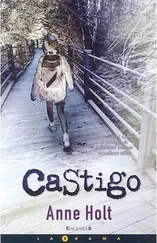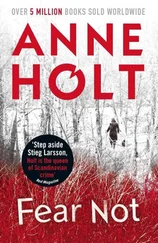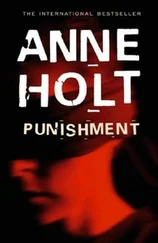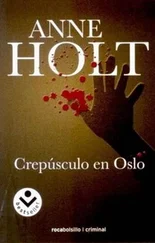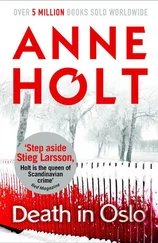* * *
This had all been something of a failure. For one thing, Lavik could have got there before him. Not very likely, though, because murder is easier at night; and it would have been simpler for him to throw off the men tailing him after dark.
But it was boring just sitting there. He finally took the risk of a little walk outside the car-nothing had come past since the crazy motorcyclists. It was bitterly cold, but fine and dry. The frost crunched beneath his feet, and he stretched his arms above his head.
There was a faint pink glow reflected on the low cloud-cover where he imagined Sandefjord must be. He turned towards Larvik and saw the same there. Above Ula, on the other hand, the glow was more of an orange colour, and much more conspicuous-and he thought he could see smoke. He stared towards the light. It was a fire!
Damn and blast! Lavik must have beaten him to it. Or maybe he hadn’t been driving the Volvo? Perhaps he’d changed cars to fool the police. He tried to remember what makes had gone past: two Opels and a Renault-or was it a Peugeot? No matter. The fire couldn’t be coincidence. Arson was one way of taking someone’s life. The man must be completely insane.
He was probably too late. It would be difficult to get Lavik now. The flames were so high that someone would be bound to notice them and call the fire brigade. In a few minutes the place would be full of fire engines and firemen.
But he couldn’t resist stealing a glimpse. Back in the driver’s seat, he put the car in gear and drove slowly towards the conflagration.
* * *
“The ambulance is the urgent thing. Very urgent.”
She gave the mobile phone back to Peter Strup, who stood up and put it in his pocket.
“Karen Borg is the worse of the two,” he said. “But the burns on your colleague don’t look good, either. And inhaling all that smoke can’t have helped.”
Between them they had managed to drag the two unconscious bodies down to the parking space where Karen’s car was standing. Hanne hadn’t hesitated to smash the window of the driver’s door with a big stone. There was a woollen blanket in the car, and two small cushions. It was also draped in a tarpaulin that they’d removed and laid beneath the injured pair. They’d torn off a large piece first and filled it with ice-cold water from a little stream just below. Even though the water quickly ran out again, they both thought it had some cooling effect on Håkon’s burnt leg. The heat of the fire could be felt right down by the car, and Hanne was no longer freezing. She hoped Karen and her rescuer were reasonably comfortable as well. The wound above Karen’s eye didn’t appear to be any more severe than the one she’d suffered herself a few long weeks ago; hopefully that might be some indication of the force of the blow. Her pulse was even, if somewhat rapid. Hanne had found some ointment for burns in the first-aid box in the car, and smoothed it on the worst areas before covering them with wet tarpaulin. It was rather like using cough linctus for tuberculosis, she thought wryly, but did it anyway. They were both still unconscious, which was all to the good.
Peter Strup and Hanne Wilhelmsen stood and watched the flames, now apparently nearly sated. It was a riveting sight. The whole of the upper storey was gone, but the lower floor was harder to consume, consisting in the main of bricks and mortar. But there must be some wood there too; even though the flames were no longer soaring high in the sky, they were finding plenty to occupy them. In the distance at last they could hear the sirens, almost mockingly, as if the fire engines were taunting the stricken cottage with their imminent arrival, knowing it to be too late.
“You would have to go and kill him,” she said, without looking at the man by her side.
He gave a deep sigh and kicked at the frosty grass.
“You could see the situation for yourself: it was him or me. I’m lucky I had witnesses.”
He was right. A classic example of self-defence. Lavik was dead before Hanne reached him. The shot had hit him in the middle of the chest and must have penetrated his heart. Strangely enough it hadn’t bled much. She’d hauled him a bit further away from the burning building, since his immediate cremation would be of little advantage.
“Why are you here?”
“At this very moment I’m here because you’ve arrested me. It would be impolite to run off.”
Too much had happened that day for her to be able to raise a smile. She tried, but the result was just a weary and unattractive contortion of the lips. Instead of asking him further questions she just raised her eyebrows.
“I don’t need to say anything about why I came here,” he went on calmly. “It’s okay for you to arrest me. I’ve killed a man, and I’ll have to make a statement. I’ll talk about everything I saw here this evening. But nothing else. I can’t, and I won’t. You’ve probably been thinking I had something to do with the notorious drugs syndicate. Maybe you still do.”
He glanced at her for confirmation or negation. Hanne’s expression was totally impassive.
“All I can say is that you’re completely wrong. But I’ve had my suspicions about what’s been going on. As Jørgen Lavik’s former employer, and as someone who feels a sense of responsibility for the legal profession, and for…”
He broke off, as if he suddenly realised he’d said too much. A little moan from one of the patients behind them made them turn round. It was Håkon who was showing signs of regaining consciousness. Hanne crouched down by his head.
“Does it hurt badly?”
A weak nod and a wince were answer enough. She gently stroked his hair, which was singed and smelt burnt. The ambulance siren was getting louder, and subsided in an anguished wail as the white and red vehicle drove up to them. Following it came two fire engines, prevented by their size from coming all the way.
“Everything’s going to be fine,” she promised him as two strong men lifted him carefully onto a stretcher and carried him into the ambulance. “Everything’s going to be fine now.”
* * *
The silver-haired man had seen enough. Lavik was obviously dead, otherwise he wouldn’t have been lying alone and unattended on the grass. He wasn’t so sure about the two prostrate bodies in the parking area. But it didn’t matter. His problem was solved. He retreated into the trees and paused to light a cigarette when he was far enough away. The smoke tore at his lungs, since he’d actually given up some years ago. But this was a special occasion.
“It ought to have been a cigar,” he thought to himself as he returned to his car and trod out the stub in the brown leaves. “A fat Havana!”
A broad grin spread over his face as he set off back to Oslo.
They both made a good recovery. Karen Borg had suffered from smoke inhalation, a minor fracture of the skull, and severe concussion. She was still in hospital, but was expected to be discharged towards the end of the week. Håkon Sand was already on his feet again, metaphorically if not yet quite literally. The burns were not as bad as had been feared, but he would have to resign himself to using crutches for a while. He’d been granted four weeks’ sick leave. His leg was excruciatingly painful, and after a week of sleepless nights and large doses of analgesics, he couldn’t stop yawning. He’d also coughed up little black particles of soot for several days after the fire. And he jumped every time anybody lit a match.
He was relatively satisfied, however. Almost pleased. They might not have solved the case, but they’d brought it to some sort of conclusion. Jørgen Lavik was dead, Hans Olsen was dead, Han van der Kerch was dead, and Jacob Frøstrup was dead. Not to mention poor old unremarkable Ludvig Sandersen, who’d had the dubious privilege of opening the ball. The killers of Sandersen and Lavik were known to the police; Van der Kerch and Frøstrup had chosen their own way out. Only Olsen’s unfortunate encounter with a bullet remained something of a mystery. The official opinion now was that Lavik was the perpetrator. Kaldbakken, the commissioner, and the public prosecutor had all insisted on that. It was better to have a dead, identified murderer than an unidentified one still at large. Håkon had to admit that the basis for the theory of a third man had gone-it had been Peter Strup’s weird behaviour that had given rise to the idea, and now the top lawyer was out of the picture. He had conducted himself in an exemplary fashion. He accepted two days’ custody without protest until the prosecution service dismissed the killing of Jørgen Lavik as having been without criminal intent. Self-defence pure and simple. Even the chief public prosecutor, who as a matter of principle believed that all murder cases should be brought to trial, had soon agreed to no charges being preferred. Strup’s weapon was legally owned, since he was a member of a gun club.
Читать дальше






